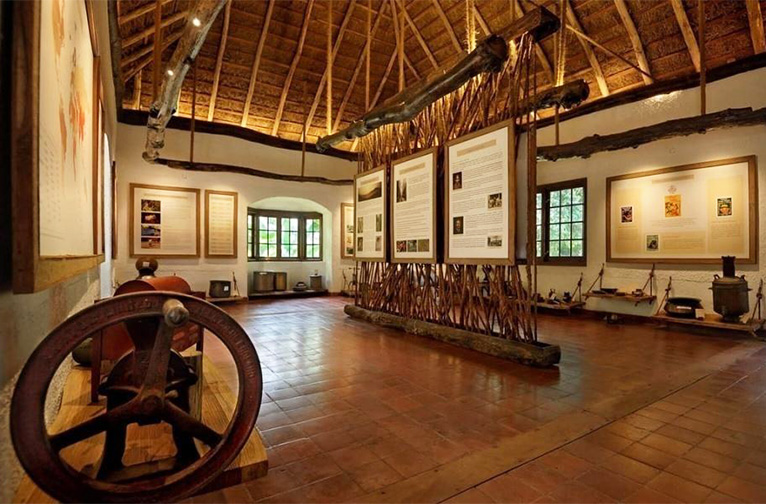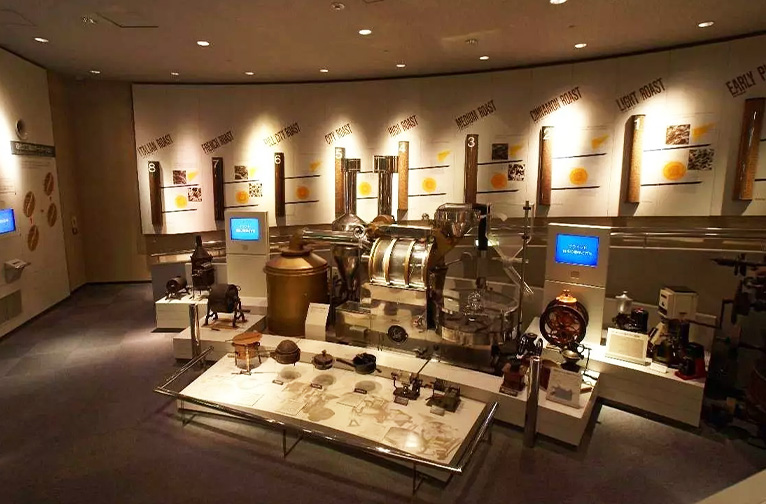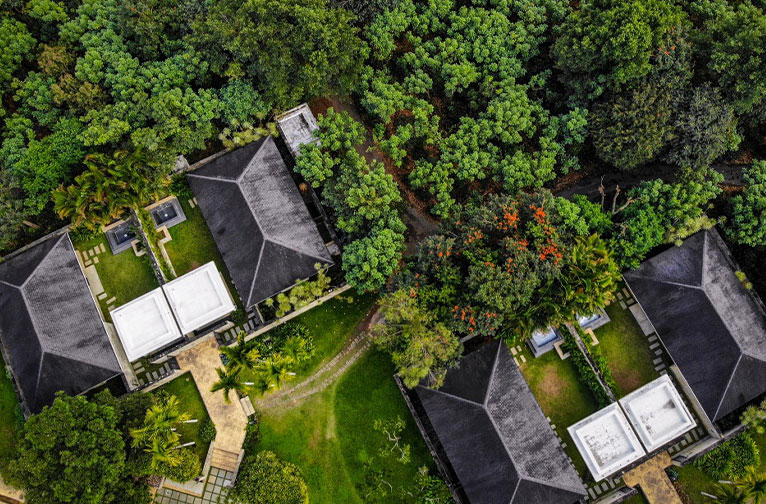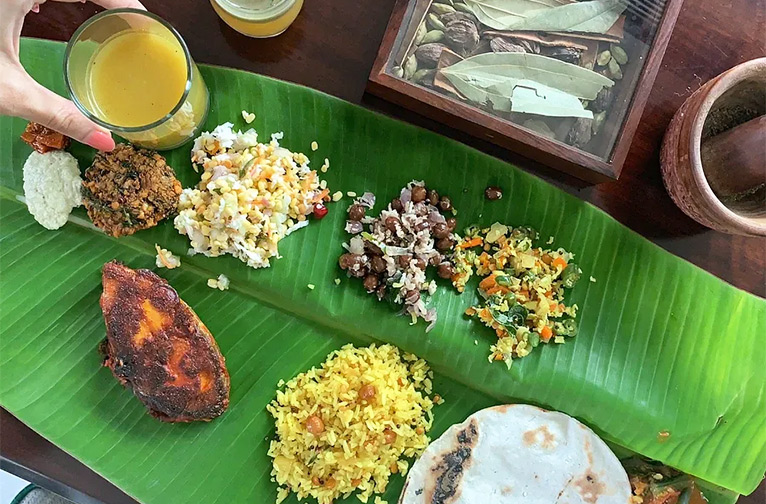Swathes of coffee plantations ‘green’ your tired and gritty eyes as you near the coastal town of Chikkamagaluru or Chikmaglur, in the wild expanses of the Western Ghats. This uplifting landscape which removes the wrinkles of stress from your brow and fills your lungs fresh oxygen is the best gift you could give yourself on a holiday in southern India.
The unhurried pace of plantation life, powered by the patience, dedication and care needed to harvest the coffee beans, is just what you need for some soulful stress-busting days in this gorgeous slice of Karnataka state.
The Karnataka connection with coffee is perpetually linked with a Sufi mystic from Arabia who sought solitude here in the soothing environs of what was known as Chandragiri hills at the time of his coming in 1650.
Baba Budan Giri or Hazarat Shah Janab Allah Magatabi, it is believed was a disciple of Hazrat Dada Hayat Khalandar, the first Sufi saint who came to this region to propagate Islam in the 11th century. Islam, one may recall, came to Karnataka through Arab trade in the coastal belt and through the conquest of north Karnataka and remained a dominant religion, largely for the Bahamani Sultans, Bijapur and Golkonda.
It was during his pilgrimage to Mecca (Al-Makha/Mocha) Baba Budan Giri discovered the ambrosial flavour of coffee from Yemen, then a powerful hub for coffee cultivation. The Baba instantly fell in love with the slightly bitter beverage. But the Ethiopians, just like the Chinese when it came to tea, were fiercely protective about controlling their monopoly on coffee and allowing coffee seeds to be taken overseas without their permission. So stringent was their hold on the sale of unroasted or green coffee beans, the penalty was nothing less than death for those who were guilty of the unlawful act! Only roasted or baked coffee beans were permitted to be exported only from the port of Al-Makha.
The enterprising Baba, who by now could not do without his daily tumbler of the brew, secretly sequestered seven Arabica seeds in his dense beard and slipped through security safely on his way to India by ship. In any case who would have suspected the holy man of doing such an unlawful thing? And how careful he was to only take seven, considered an auspicious and sacred number by Islamic traditions, to temper any consequences of his illegal act!
On his arrival on the Malabar coast, he headed for the Chandragiri Hills, where he made himself a home in a cave. Then he carefully planted the seven purloined coffee beans in a patch of green surrounding it—nurturing them daily with tender loving care.
Over time the Baba’s brew, from just being a garden curiosity, with its discovery and machinations of British colonists in the 18th century, came to be extensively popularised with coffee cultivation expanding into the Nilgiri Hills and Wayanad— all under the umbrella of the British East India Company. In the Baba Budan mountains Coffea Arabica still grows on the higher elevations, and Coffea Canephora (Robusta) can be found on the lower altitudes. Today, the primary coffee production regions in India are the southern states of Karnataka, Tamil Nadu, and Kerala. Some coffee is also produced in Andhra Pradesh and Telangana. Karnataka, however, the place of its birth, has captured over 70% of the country’s production.
The top commercially viable coffee species in India are Arabica and Robusta. But did you know that one of the world’s most expensive coffees, Kopi Luwak, made with civet cat droppings and prized for its luxurious and unique flavours, is also sourced from the Coorg region?
Kopi Luwak, cherished by coffee connoisseurs worldwide, undergoes a unique and highly intriguing process. The Asian Palm Civet, a small mammal is legendary for its selective taste in coffee cherries. Were you aware that ripe coffee cherries are fed to civet cats and undergo a natural fermentation process? The cat’s digestive juices change the taste and chemical composition of these beans resulting in a smooth, velvety, and aromatic flavour profile. When the cat does a poop, in it are also partially-digested coffee beans; only the finest beans are then handpicked carefully, washed, dried and then roasted before being packaged and shipped out as Kopi Luwak! The beans’ fermentation process results in a coffee with distinctive flavour notes of chocolate, caramel, and nuts, accompanied by low acidity. The cost of wild Kopi Luwak, fluctuates between $20 and $100 per cup, and even for farmed Kopi Luwak, the price sits between $10 and $5!!! You can order yours from Choco Coorg Spice one of India’s best online spice stores.


To get back to Chikkamagaluru. Nestled in the shadow of the mist-wreathed Mullayanagiri peak, the highest in Karnataka, it’s an excellent base for exploring the coffee plantations scattered around these hilly enclaves. Several of these even offer homestay options which include estate and factory visits. It’s a lovely way to enjoy an immersive experience of plantation life in southern India, which is also popular for its stunning tea estates.
In town you can opt for your own special blend of coffee and chicory at one of the F&G (Fresh and Ground) Café Coffee Day curing unit outlets in the market. There’s also the Panduranga Coffee Works, one of the oldest and finest coffee roasters (it dates back to 1938) which is located MG Road.
You can also visit the Coffee Museum or the Coffee Yatra Museum, an initiative by the Coffee Board of India, in the Dasarahalli locality in town. From harvesting the coffee beans to drying, roasting, tasting, grinding, and powdering them to cater to all types of taste buds, it puts the spotlight also on the technology and traditions involved in running a coffee plantation.
Stepping out one can head out for the beautiful Baba Budangiri trekking trails; the Chandragiri Hills are now so named to honour the Sufi saint who scripted India’s coffee story! The hilly region also goes by the name of Chandra Drona Parvat Shreni Mountain Range and Dattagiri (the hill of saint Dattatreya). The Baba is a much-revered figure in these parts amongst Muslims. Hindus too worship him as an incarnation of Sri Dattatreya Swamy. Dattatreya is a Hindu god and sage believed to be the avatar of the Holy Trinity of Hinduism.
The Sufi baba’s shrine, known as Sri Guru Dattatreya Baba Budan Swamy Dargah, or Inam Dattatreya Peetha, is a bustling hub in summer with the arrival of droves of devotees. The Baba Budangiri Dargah is often referred to as “Guru Dattataraya Bababudanswamy’s Dargha” or “Guru Dattataraya Bababudan Durga” in the records of the Princely State of Mysore (Karnataka).
Every 12 years the Baba Budangiri Range stuns you with the glorious hues of the blossoming wild kurinji flowers (Strobilanthus kunthianus). The last blooming took place in 2022; the next breathtaking flowering will take place in 2034. These beautiful purplish-blue flowers were used by the Paliyan tribe of Tamil Nadu to calculate their age, as they bloom after every 12 years during the months of September and October. Devaramane in Chikmagalur has a slew of trekking trails which are great for beginners and professional trekkers. The trail to Haarlu yields picture-perfect viewings of, kurinji carpeting the entire hillside.
An idyllic base for your explorations around Chikkamagaluru is The Serai Chikmagalur which offers a superb range of luxury accommodations including independent villas with their own splash pools/jacuzzi, a poolside gazebo, a relaxing tub, and an outdoor shower and sit-outs. The Estate Terrace is a 2-storied villa; the upper floor features a large balcony, and a bedroom overlooking the tree tops. The large bay window offers views of the landscape of the coffee plantation. At ground level there’s a lovely well-appointed living room; you will love the gazebo, the private plunge pool and outdoor shower. The Residence is an opulent, airy place featuring living and dining spaces flanked by two bedrooms. Bathed in sunlight and hues of green, the private pool, garden and gazebo highlight the charms of this tranquil holiday home.


The Oma Spa here does full justice to The Serai’s roots in the decades-old coffee estate business. Natural botanical ingredients chosen to suit all skin types, sans side effects are used for bespoke treatments and therapies here. With coffee as its core, the Oma Signature Series is a coffee-crafted series of therapies made from fresh ground coffee from the estates of the company, which also operates the Café Coffee Day chain in India. Culinary adventures at The Serai are immersive experiences shaped by the cuisine traditions of Malnad and Chikmagalur. Cook a meal and enjoy a sit down ‘Bale Yele Oota’ - a traditional meal served on a banana leaf. You will take back unforgettable memories of a picnic meal in the midst of the plantation, amidst the trees, by the lake, or beside your pool.
Having tasted the flavours of India’s coffee traditions, you’ll rarely sip a cup of coffee without your thoughts winging back to charming, Chikamaglur or Chikkamagaluru as it is now known.